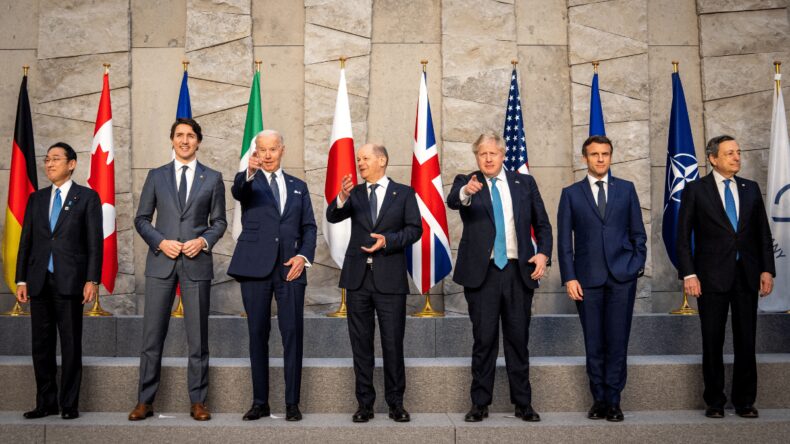
The Group of Seven (G7) finance leaders, which includes the US, Canada, Britain, France, Germany, Italy and Japan, recently pledged to take measures to maintain the stability of the global financial system. The commitment came after recent banking turmoil that saw two US banks collapse and Credit Suisse, a troubled global lender, forced to sell. The G7 finance ministers discussed the developments in the financial sector and emphasized the importance of taking strong action to stabilize the system.
Efforts to diversify supply chains to make them more resilient
The G7 finance leaders also committed to offering low- and middle-income countries a bigger role in diversifying supply chains to make them more resilient. They promised to jointly empower these countries to play larger roles in supply chains through mutually beneficial cooperation, promoting sustainable development and improving global supply chain resilience. The ministers cited the need to diversify the highly concentrated supply chains for clean energy technologies, which is critical for sustaining macroeconomic stability and making economies more sustainable.
“Friend-shoring” efforts by industrial democracies to become less reliant on China

Although the communique issued by the finance ministers at the International Monetary Fund and World Bank meetings did not mention China by name, the supply chain language matched “friend-shoring” efforts by industrial democracies to become less reliant on the country for strategic goods like battery minerals, semiconductors, and other supplies. The G7 finance leaders pledged to stand firm in protecting shared values while upholding the free, fair, and rules-based multilateral system and international cooperation, using language often used to exclude China and other autocratic regimes.
Encouraging joint research and development efforts
The G7 finance officials committed to promoting collaborative research and development initiatives among G7 countries and other interested parties, in addition to strengthening partnerships with developing nations on supply chains. They also committed to empowering private sectors in their countries to diversify their supply chains using public finance tools that can catalyze private resources transparently and predictably. The ministers committed to promoting education, training, and skill development with good governance and adherence to human rights.
Addressing the fragmentation of the global economy

The International Monetary Fund has warned that the fragmentation of the global economy into geopolitical blocs is a significant factor in reducing longer-term growth potential. The IMF projects only 3% growth expected in 2028, the lowest five-year projection since the organization started issuing such forecasts in 1990. Nevertheless, French Finance Minister Bruno Le Maire believes that diversification away from China and alliances with allies are necessary. He emphasized the need for greater independence in the production of green hydrogen, artificial intelligence, semiconductor chips, electric batteries, and other strategic goods.
Critical step to boost supply chain resilience and stability
The G7 finance leaders’ recent pledge to maintain the stability of the global financial system and efforts to diversify supply chains to make them more resilient are critical for promoting sustainable development and improving global supply chain resilience. These efforts are necessary in light of recent banking turmoil and the need to reduce reliance on China for strategic goods. The G7 finance leaders also pledged to support education, training, and skills development, address the fragmentation of the global economy, and encourage joint research and development efforts among G7 members and other interested parties.













